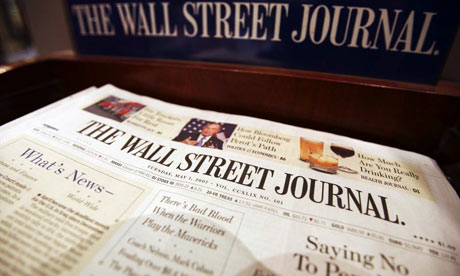Today a must-read Wall Street Journal editorial explained the extent to which press freedom constitutes an ever-present threat to our national security. Pointing to the recent unauthorized release of secret US government documents by Wikileaks, the paper explained that by continuing to exercise its freedom, "the press will put its own freedom in jeopardy."
True enough. But to their credit, the WSJ's editors took the occasion to remind us that threats to national security extend far beyond terrorism:
But the closer we and others have looked at the documents, it's clear that the WikiLeaks dump does reveal a great deal about the military's methods, sources, tactics and protocols of communication. Such details are of little interest to the public at large, and they are unlikely to change many minds about the conduct, or wisdom, of the war. But they are of considerable interest to America's avowed enemies and strategic competitors such as Russia and China.It is important to realize that the terrorists are by no means the only threat that America faces.
In the interests of national security, DoF Secretary Malcolm P. Stag echoed the Wall Street Journal editors in comments at a press conference this morning:
"'Freedom of the press' must be balanced against the 'risks of the press'," said SecFear.

